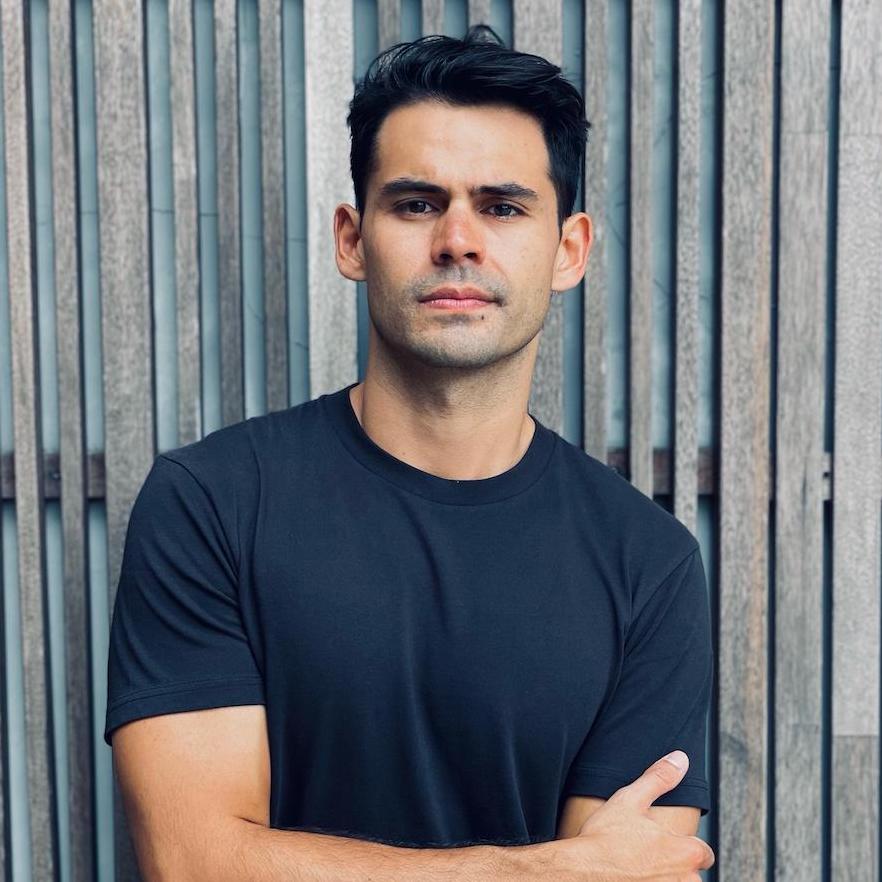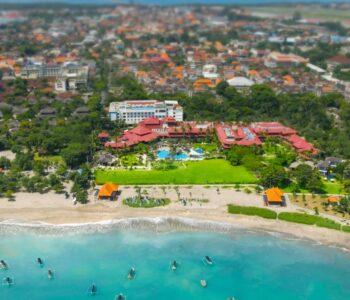In an effort to bolster Bali’s local economy, one company is establishing a network of treks and trails throughout Bali with the objective of directly empowering local communities whilst also encouraging a sustainable, eco-tourism model for the island.
Bali is no stranger to outdoor tourism, for decades visitors have been able to charge up mountainsides and cycle through peaceful rice fields, exploring what the island’s natural beauty has to offer. Sadly for many of the island’s operators, these tourist-dependent businesses have struggled, or even folded, through this two-year pandemic.
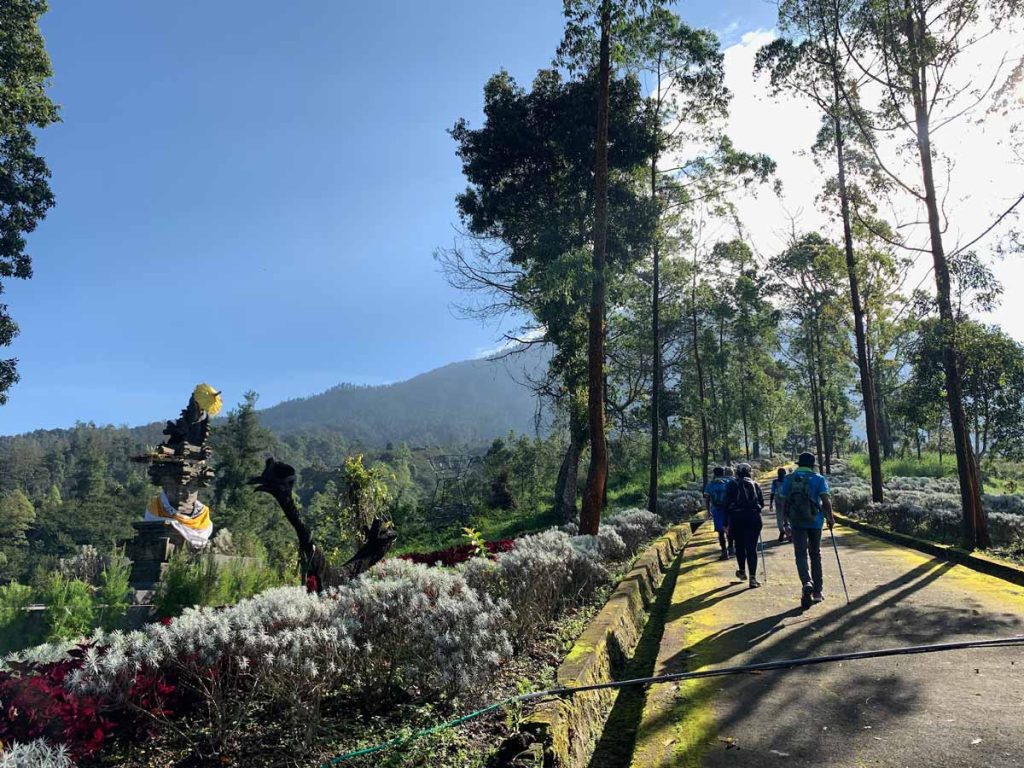
A silver-lining, if we can take one from all of this, is that Bali’s natural environment has enjoyed a brief reprieve from the tourist crowds. The bush has reclaimed the over-trodden paths, birdcalls and shrills of insects once again dominating the sounds of the forest. Nevertheless, the crowds will eventually return, seduced by the variety and richness of the island’s tropical landscape, even from afar. The question thus becomes, in this time of ‘quiet’, can we develop a way in which to do things better?
“It’s actually a good time to re-think this industry,” shares Krystyna Krassowska, “many people previously working in tourism have moved back home, which means there is a lot of capacity in villages where direct value can be created for the community.”
Krystyna Krassowska, better known as KK, is a British expedition leader, Fellow of the Royal Geographical Society London, and sustainable development professional whose prior experience includes consulting on green economies, climate change and responsible tourism for USAID, The World Bank and several national ministries. Through her development work, as well as years exploring rural corners of the archipelago, she saw the potential of eco-tourism in Indonesia. Thus in 2009 she founded idGuides, an Indonesia-based eco-tourism, outdoor education and expedition consultancy.
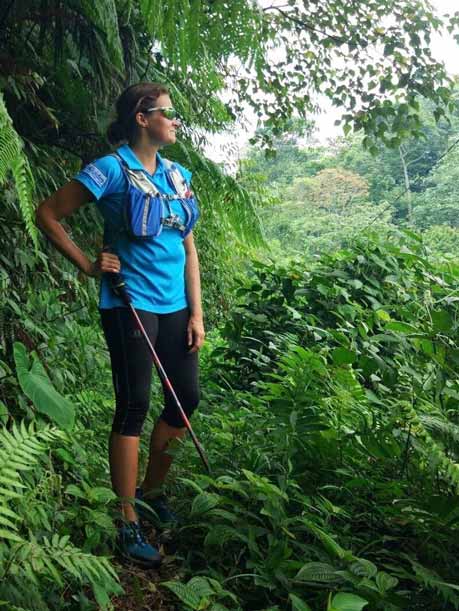
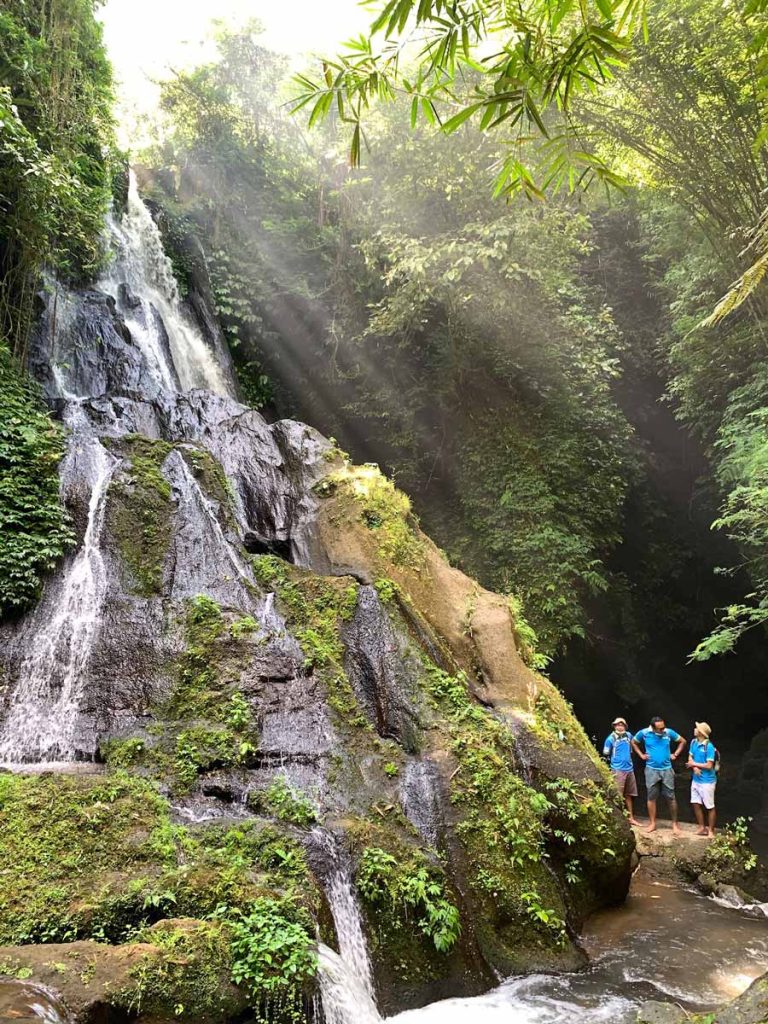
The vision of idGuides has always been to develop a professional trail tourism system in the country, centred on three important pillars: trails for people and planet.
“Trails provide the development thread upon which to build sustainable tourism products, experiences and economies which are low-carbon and benefit both urban and rural populations. People is about investing in local communities, social institutions and heritage,” KK shares with NOW! Bali. “Planet involves creating low-carbon experiences, supporting and preserving ecosystems and being part of environmental projects. All of this achieved through trekking, trails and the great outdoors.”
idGuides pioneered their model of sustainable trail ecotourism in Sentul, a critical highland watershed south of Jakarta. The goal was to create new professional livelihoods for local farmers based on village trail assets and showcase what farmers know about their crops, their landscape and local folklore. Since 2009, idGuides has trained a cadre of idGuides Sentul community trail guides and together with the local community developed a network of hiking trails and run thousands of private treks, re-investing Rp.10 billion in accrued revenues into the village economy, community infrastructure and conservation-based livelihoods. KK explains that trail ecotourism development must be done on two prongs, the first is building capacity of the people to run professional operations and the second is the quality of the experience. Both must scale together.
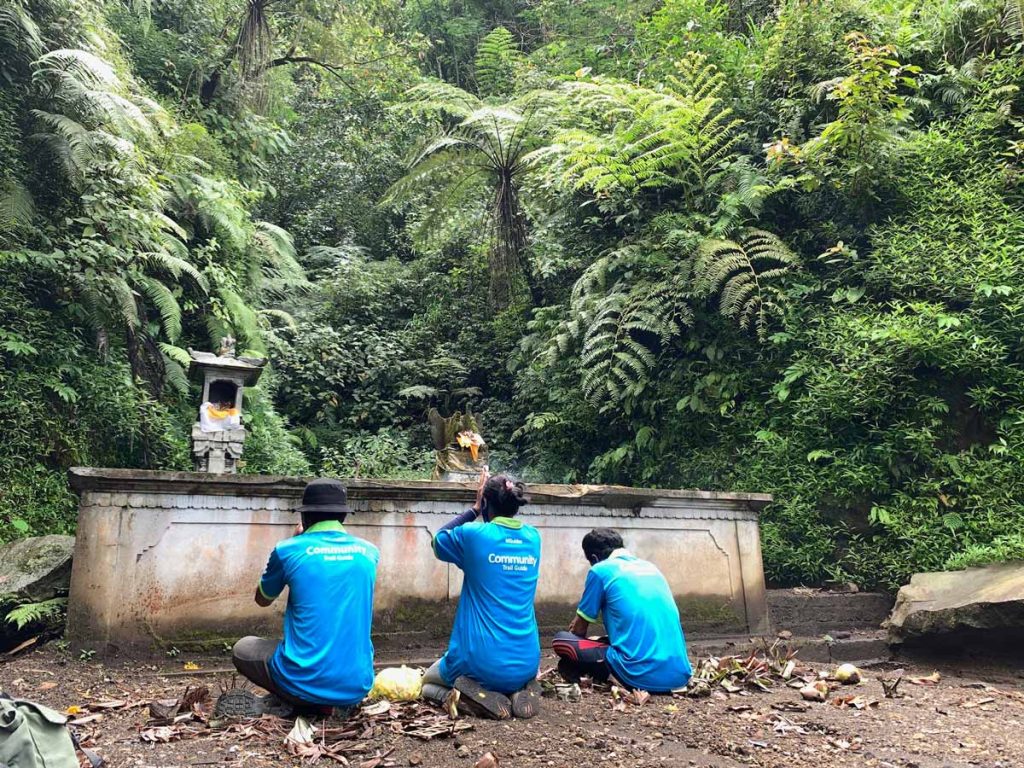
idGuides ‘Easy Escape Jakarta’ trek program, Sentul, continues to be an important pilot in creating systems and procedures that could be applied to any area or region. Since they began, they have trained hundreds of guides and community trail ventures across Indonesia, all under a network they call “Team idGuides”.
As for Bali, it was always an objective for idGuides, seeing the dire need for more environmentally and socially sustainable tourism models. But the timing never seemed right. When the pandemic hit however, KK and her team felt that their system could really benefit rural communities and those now back in villages without employment — so they put on their hiking boots and began mapping out trails in collaboration with villages across Bali.
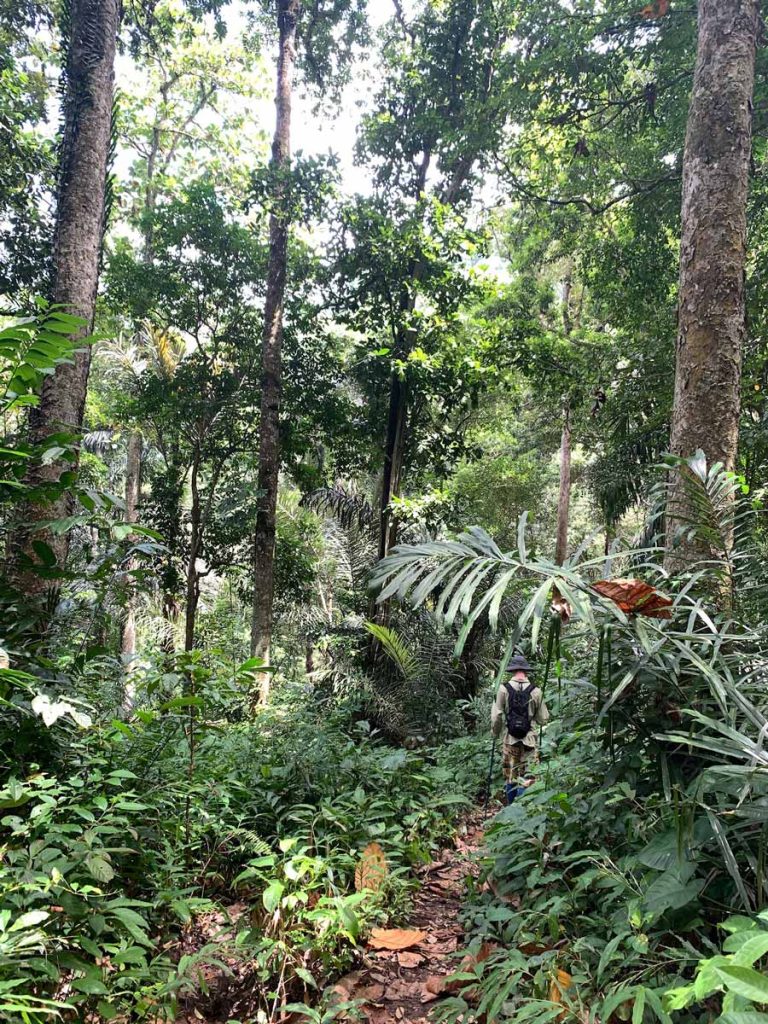

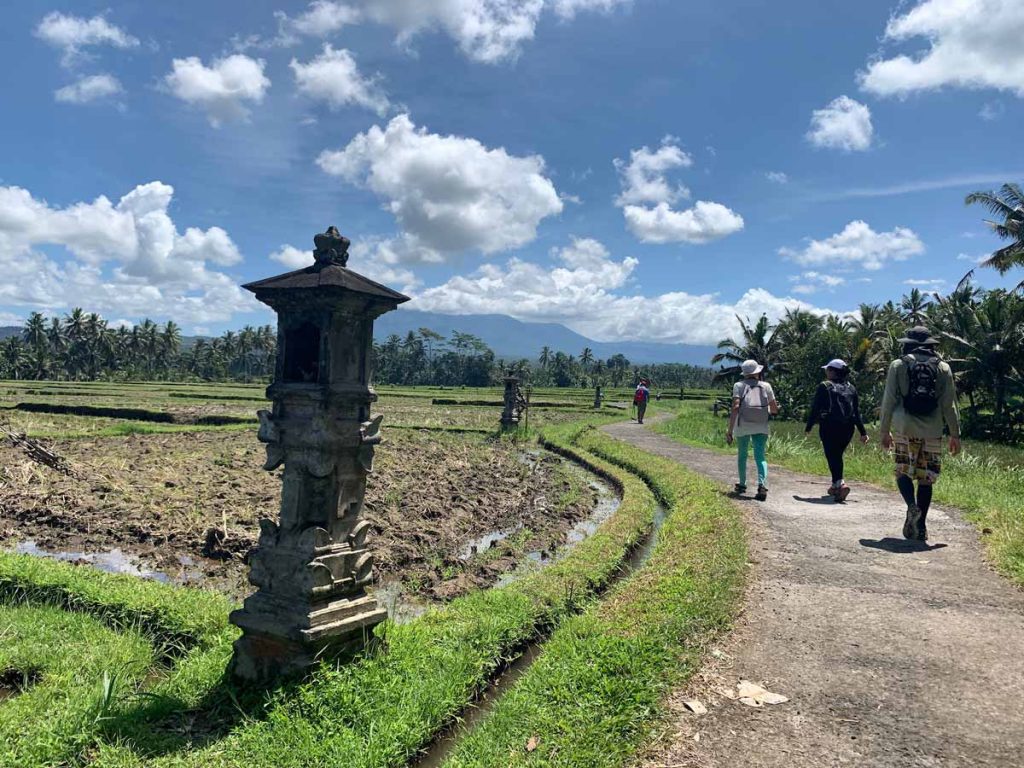
After almost a year, idGuides have developed an epic, cross-Bali trail, linking together village PokDarWis (community tourism groups under the BUMDes, Badan Usaha Milik Desa), whilst simultaneously creating micro-trails at specific locations along that trail.
The behemoth route, dubbed The Great Bali Trail, will be Bali’s first community-owned and co-operated long distance hiking trail, spanning an arc of 200km from Pura Tanah Lot (Tabanan, southwest coast) to Pura Candidasa (east coast), enabling hikers to experience Bali’s traditional agro-forests, rice fields, coastline, mountains and cultural sites, on foot. The GBT route winds its way over 16-stages north towards Gunung Batukaru, Jatiluwih, across the Ayung River to Tegallalang, Tirta Empul, Penglipuran and Undisan, ascending to Gunung Agung’s holiest temples, Pura Besakih and Pasar Agung, and down to Sibetan and Tenganan to the coast. From April 2022, all 16 stages of the GBT will be available for bookings as single day-stages, 3-5D multi-stage treks and 10-16D expeditions operated in 4 different ways – Just Trek, Learn from Locals, Silent Treks, Fastpacking/Ultra-Trail journeys.
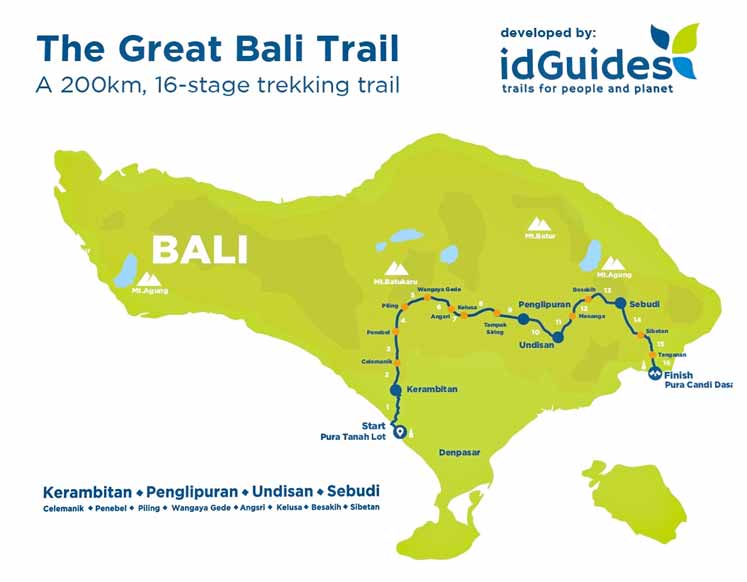
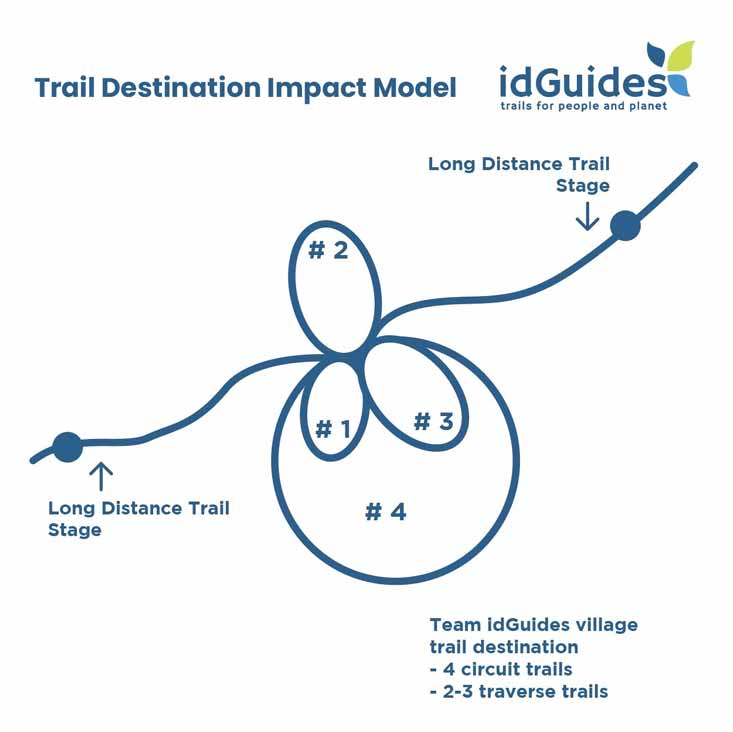

Along the GBT, four ‘Community Trail Hubs’ have been developed at Kerambitan, Penglipuran, Undisan and Sebudi with 4-6 circuit trails developed for those wanting to explore one specific area as full-day walks, half-day walks and family walks, and for community-based outdoor education and retreats.
It truly is an impressive network of trails, now available across Bali. Depending on people’s preferences and abilities, they can choose to traverse the stages, from one area to another; or enjoy walks and hikes within a given destination. Importantly, this wide range of trails reduces the concentration of visitors in one area and helps to spread wealth to often marginalised regions like East Bali.
This was only half of the work though. idGuides wanted to ensure that each region was benefitting from these experiences, which is why every ‘area’ hosting a trail is given fair remuneration for every person that passes through.
“Customers will get a receipt which actually presents a breakdown of the costs involved in a trek. This is what we call Sustainability Pricing, which takes into account the social, environmental and village economy costs of a visitor walking along a trail,” explains KK. “If we travel through two subaks and three Desa adats, this will be reflected in the price.” By doing this, idGuides wants to create awareness to consumers on the direct social, environmental and village economy benefits they are contributing, as well as create transparency between all parties.
Even so, pricing for their treks are affordable and accessible. idGuides wanted to offer something that residents and domestic tourists wouldn’t shy away from, creating as little friction between them, Bali’s great outdoors and these communities. The more people that experience both, the more people will cherish them.
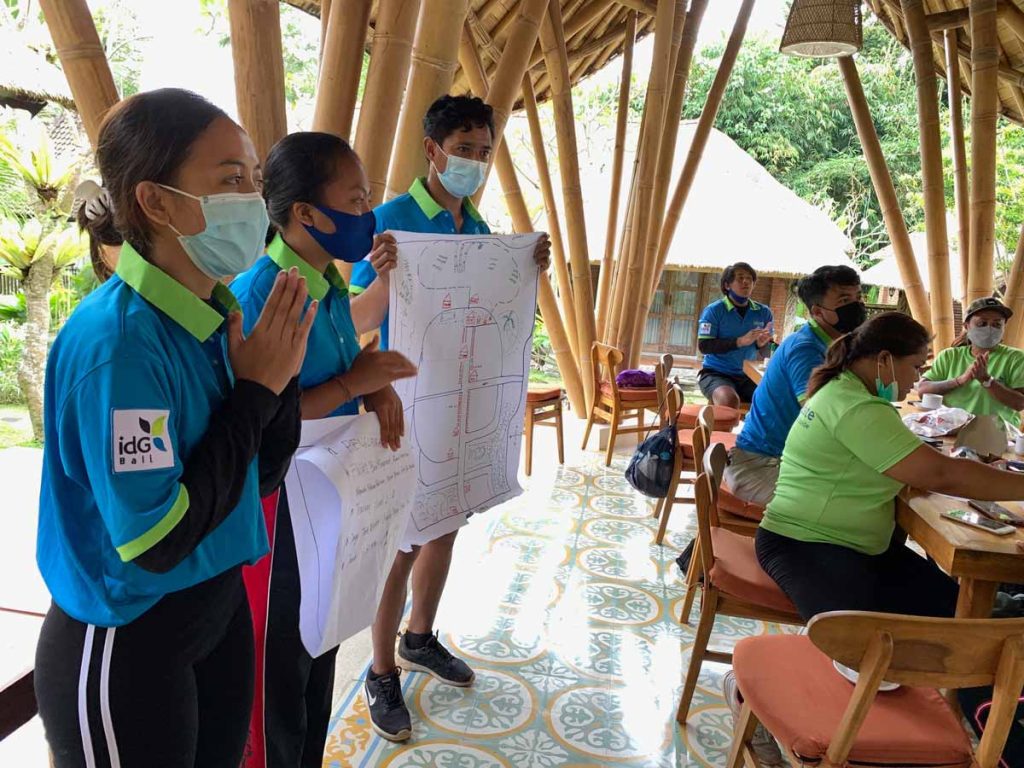
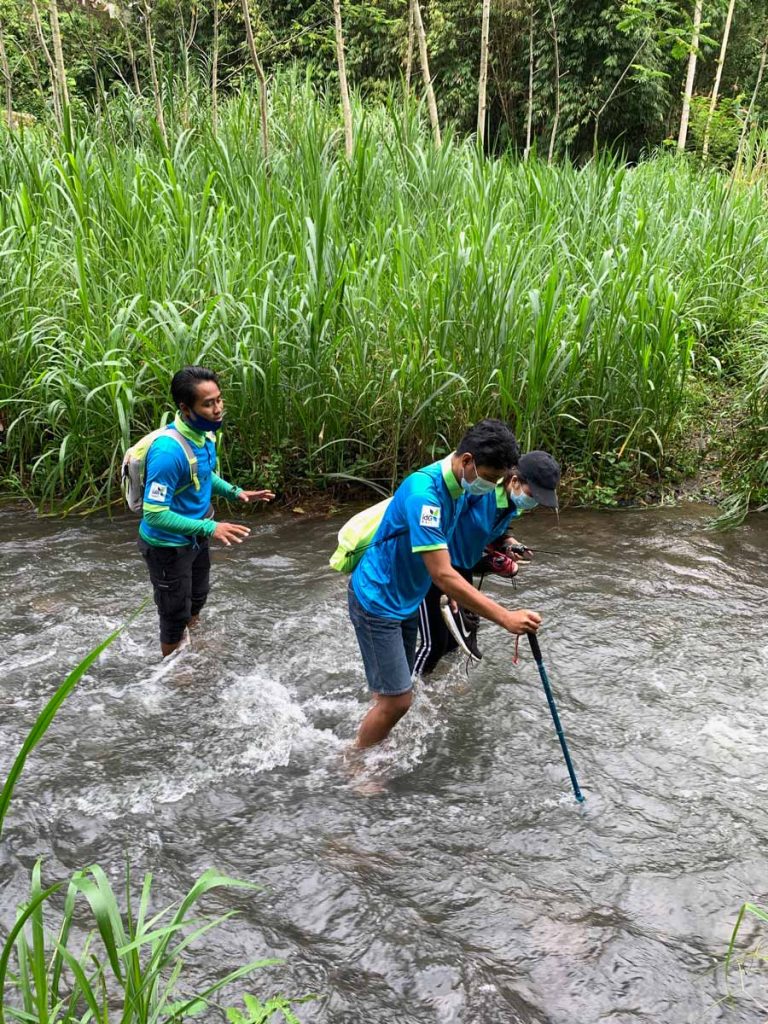
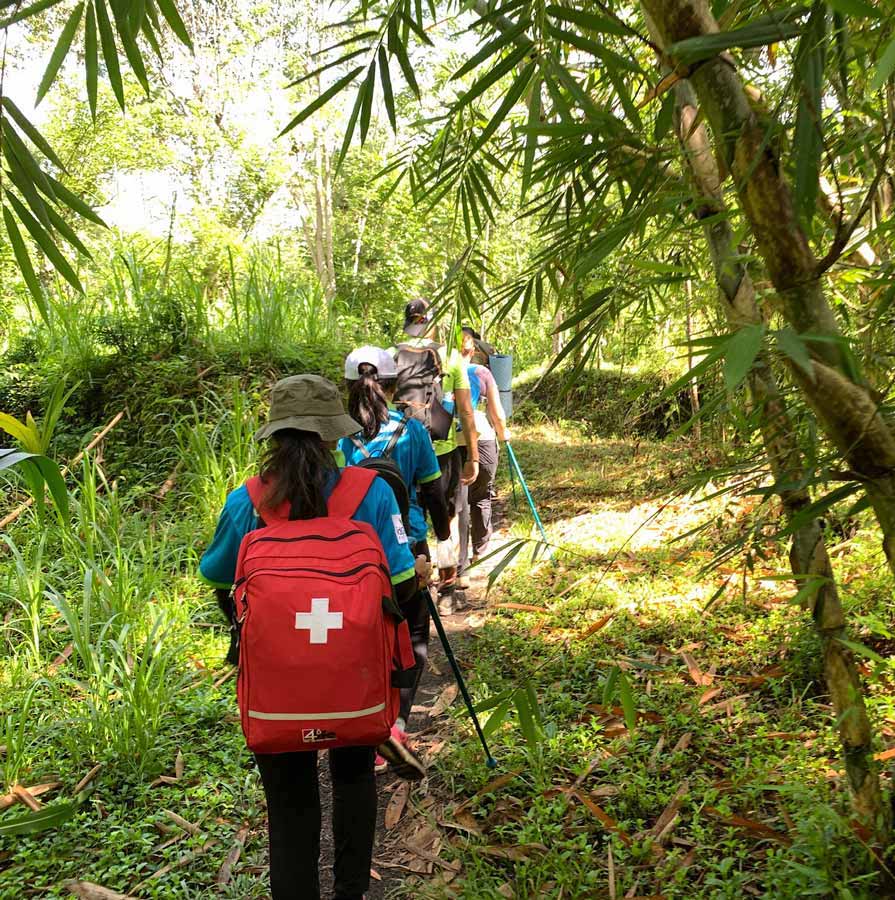
KK shares that what idGuides offers is essentially a structure and an operating system for a community-run, sustainable ecotourism economy. “For anyone who wished to develop a trail destination in their area, we offer support for collaborative trail development, guides training, operational and sustainability standards, and then of course we bring this to market.” The Team idGuides professional development program includes 7 modules and grades guides from ‘Community Trail Guide’ to ‘International Expedition Leader’, creating a demand-driven standard for trail guiding similar to PADI in the diving industry. Team idGuides members follow strict principles, such as Leave No Trace, safety procedures, reporting and risk mitigation. What this does is uplift the standards of trail guiding across the country and build a newfound confidence and professionalism that customers can rely on. Whilst for many this may just be a side-gig as tourism is in a lull, it can very easily be a career path for those looking to pursue further.
That is not quite the end of the idGuides mission however. They hope that these trails will become windows into local initiatives and projects too. They can also become destinations for education, be it expedition skills or agricultural experience.
Importantly, what idGuides is showcasing is an effective business model that benefits local communities whilst preserving natural landscapes. They are proving the possibility of eco-tourism on an island that really must refocus the industry to one that values the natural landscape (i.e. doesn’t require an increase in built environment!) and provides direct benefits to rural communities. In other words, a model that focuses on people and planet.
If you want to experience one of these trails for yourself, be it an area-to-area traverse or just a day’s hike, explore the many routes idGuides has put together. Trail times, difficulties and suitability for families is all indicated, prices start from IDR 275.000 per person.
Instagram: @idguides @greatbalitrail
+62 812 1800 8401
Website : www.idguides.org

